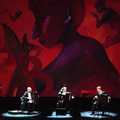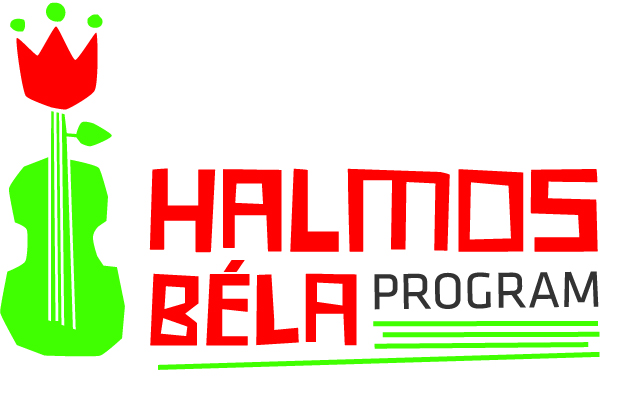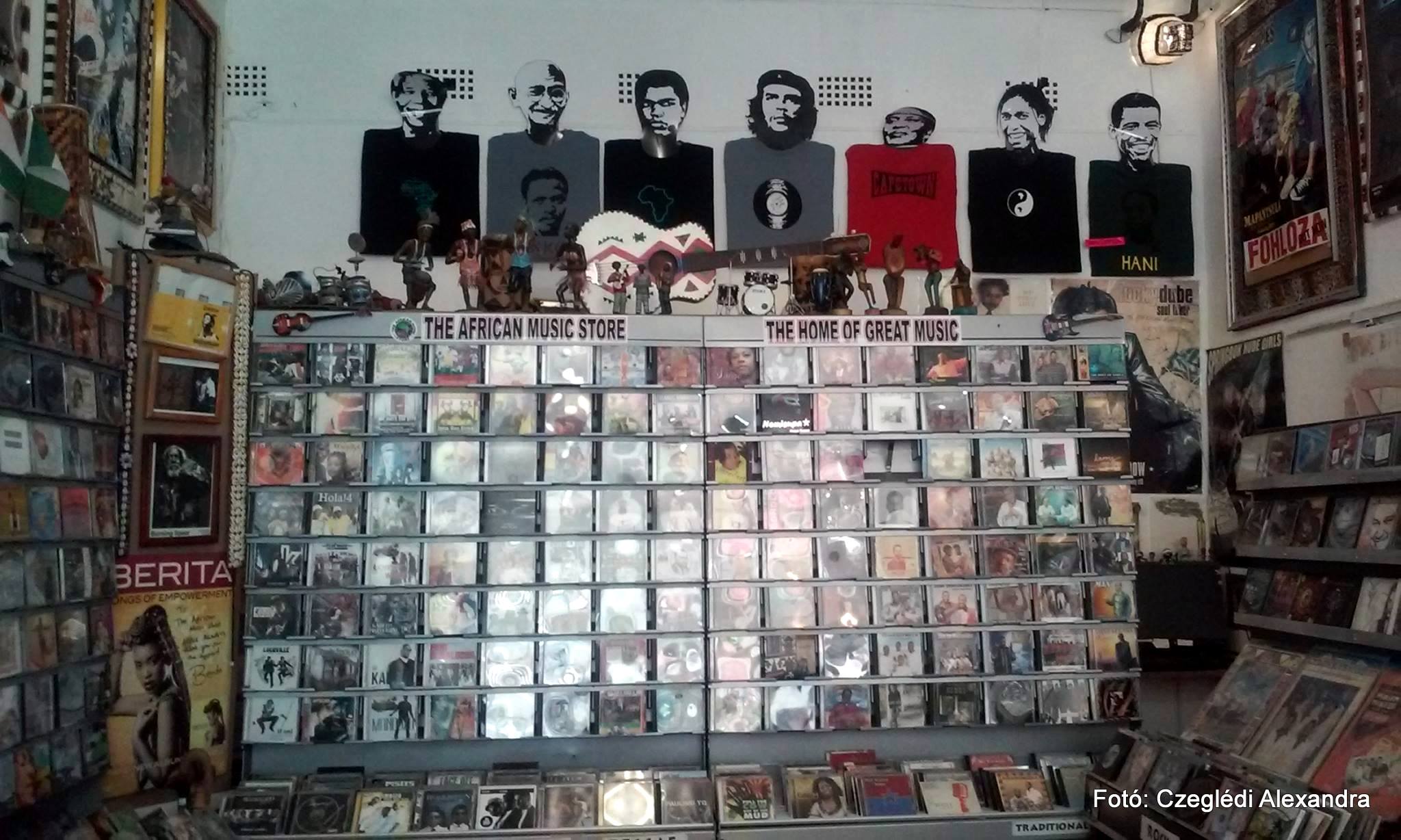
Alexandra Czeglédi’s article is based on interviews she conducted in Cape Town, South Africa. It deals with local interpretations and manifestations of the world music.
We might have quite a few ideas about the world music industry that emerged in the late eighties. We might be also familiar with popular festivals utilising the world music concept, such as WOMAD (UK) or the Sziget Festival’s World Music Stage (Hungary). Since the WOMEX 2015, we have seen, heard and red more about the world music phenomenon. We might point to those dusty CDs lying on the shelves, to those performances available for the Hungarian audience that strive for fitting, without any resistance, into the category of world music. At European festivals, the world music as a magic word lures people of the globe, an audience to celebrate the folk and pop music of the “world”. It is a joyful perspective I could tell, for instance, about the Babel Sound Festival (Hungary) or the Druga Godba (Slovenia). But beyond the Hungarian and European experiences, is the world music able to evoke such a joyful and pleasant festival moment? What people think of the world music elsewhere? What people think of the “African” world music in Africa?
I thought it could be worthwhile to look for answers in the Southern cape of the African continent, in the South African city of Cape Town. I did so since over the last two months I met and talked to musicians, local music fans, record store owners, composers and festival organizers here in Cape Town. When I asked them to share their opinions with me about the world music, many of them raised their eyebrow, and turned to me with a wondering, wide-eyed facial expression. Following that, I tried to raise the question once again. Initially, I thought it had happened due to my Hungarian accent and the way I articulated the two words: “world music”. But I wasn’t right! My second attempt also failed in changing the wondering gazes. At that point, I came to acknowledge that it was probably not my pronunciation that had made the world music expression so unidentifiable. As during the conversations it turned out, the world music as a festival phenomenon had barley been a frequent guest within the Southern African entertainment industry. Although the world music is a familiar genre to Capetonian music lovers, in many cases, the local interpretation of it seems to be incompatible with those joyful European festivals.
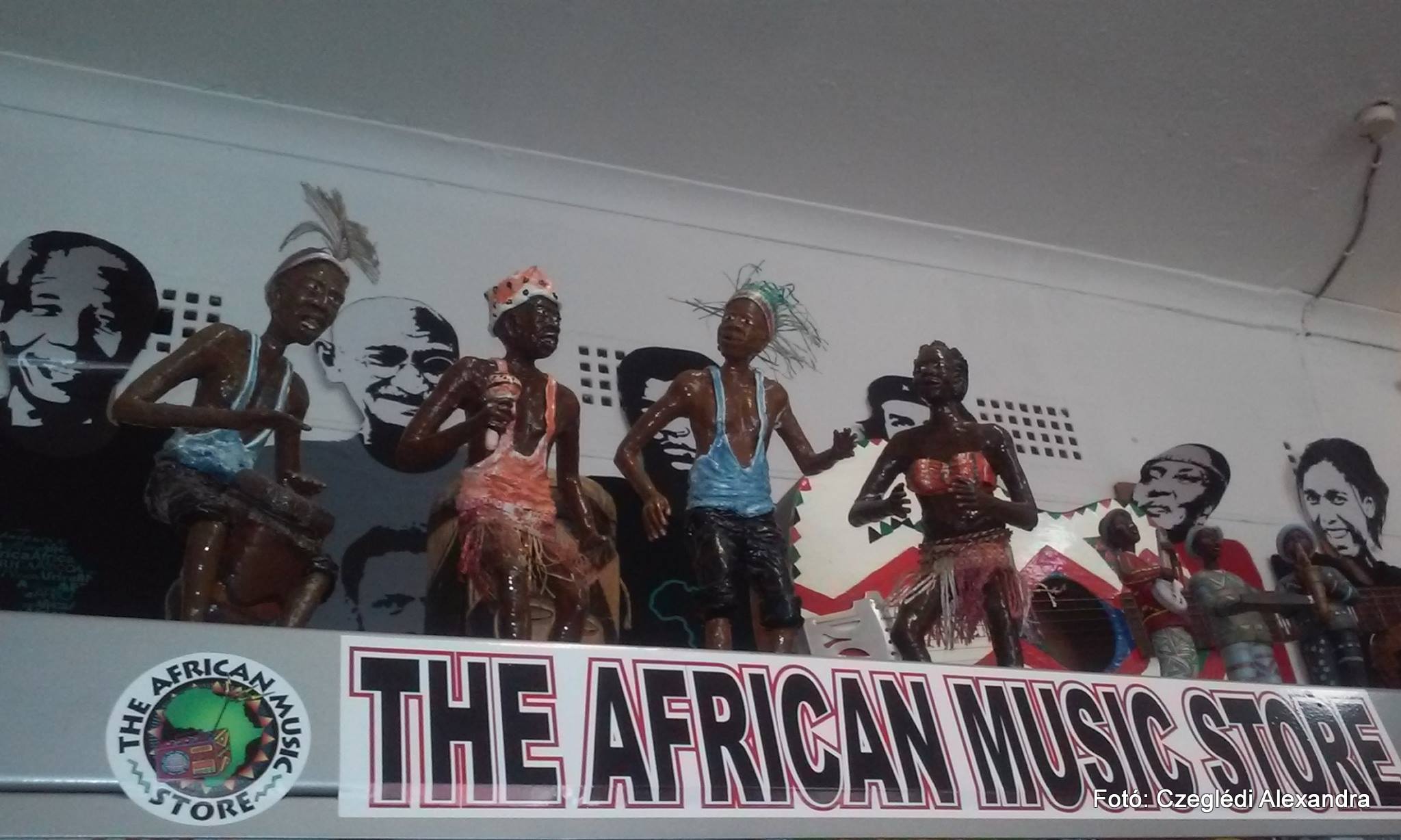
Pursuing the world music’s birth anecdote, I begin to look for “African” world music in a local record store, the only African music store situated in Observatory quarter. There, during a conversation with Mark Charnas, the owner of the store, we tried to figure out together why the world music is quite invisible genre in South Africa. By entering the record store, I find afrobeat, jazz, gospel and kwaito labels indicating the most popular local genres, but there is no single trace of world music label. Mark’s collection that he accumulated in the last two decades consists of CDs and records of the South Africa region. And if we wish we could call it world music collection. “But no, you cannot call it world music!” – Mark immediately objected the suggestion I made. He believes that the world music category well illustrates the way how people think of the word in general. For him, it is an absurd term that sounds more like “music form the Moon”. Indeed, the world music categorization is sufficiently vague and flexible to represent cultural differences in a simplistic way. As Mark pointed out, we can call it cultural difference which might seem foreign, strange and almost alien, but only from a European perspective. Thus, we must see that the world music labelling has mostly been applied to non-white musicians, non-English speaker artists.
The local genres deserve more attention.
In Mark’s opinion, the relationship between the former colonial countries and the former colonies has determined who can get into the world music industry. For example, the Francophone music industry have benefited from France’s assimilation policy. Indeed, if we think of it for a while, we are more likely to watch and listen Western African musicians on the world music stages than performers from the Southern African region. Unlike artists from Northern Africa, musicians from the former British colonies used to face more cultural obstacles in getting into the European podiums. This quasi colonial cultural policy seemed to be changing from the late eighties. The British industry become more open to non-European sounds and African music traditions – says Mark. Today we see that European festivals can easily celebrate the music from all around the world. In countries like South Africa, however, there has been less money invested into the concept of world music. Local genres deserve more attention here. For example, the Cape Town Jazz Festival is one of the most popular, locally embedded events featuring hip-hop, free jazz and afropop bands on the same stage. Few years ago, Youssou N’Dour, the emblematic figure of the world music scene was performing at the Jazz Festival. Despite his presence, we can’t consider this event a world music festival – notes Mark.
Strangely, the world music industry likes to incorporate and advertise musicians who are committed to their political engagement, in a similar way as they are committed to their musical profession. Like for example Miriam Makeba and Hugh Masekela who got in the spotlight during the seventies. They were among those lucky artists who found shelter in the United Sates shortly after escaping the institutionalized racism of apartheid. During the apartheid era, however, music companies recorded lot of songs which up until today, they are unwilling to release so as to avoid paying royalties to the artists involved. It is really said that we find many musicians in South Africa who despite their hard work, haven’t got any respect within the music industry. One of them is Solomon Linda, the famous composer of The Lion Sleeps Tonight (Mbube) hit who passed away in oblivion and poverty. There have been many cases like Solomon Linda’s in the past few decades - cases of injustice that just cannot be forgotten. For example, the documentary entitled Amandla! A Revolution in Four Part Harmony tells us about this era, the segregation of people of colour, and the years of political resistance to the apartheid regime that was fuelled by music.
One of the most intense collaborations is happening between Brazilian and local musicians.
They history of the Southern African region embraces numerous narratives that certainly don’t tell us joyful tales of people of the globe. The main narrative among many is about the world economy of slavery that witnessed a rather violent meeting of cultures. Within this context, I had a conversation with Paul Rommelaere, the lecturer of University of Cape Town, about the local manifestation of world music. As he said to me, local identities have a special place in the life of musicians. For him, one of the most intense artistic collaboration is happening between Brazilian and local musicians. It is a mutual learning process through the musical memory of slavery. The tradition of the berimbau instrument travelled with the slaves to South American continent which today brings musicians to Africa as a guiding tool. The musicians plays together by focusing on knowledge sharing rather than on extracting and exporting African exoticism to the music industry – says Paul. The world music, in this sense, is a meeting of identities, traditions, and the ritual of revisiting the roots of a common history.
Maintaining various language and cultural identity, and being in touch with the local community is more important than following a European career. That does not mean that musicians from the Southern African region would not give concerts all around the world. While local performances are relevant in both rural and urban environments, and they remain locally meaningful, it is barely possible in European context. For example, performances of Matchume Zango, student of the University of Cape Town, are in conversation with the chopi culture. He was the disciple of the timbila master, the highly respected Venancio Mbande from the Mozambican chopi tribe. Matchume, during his tours, continues to preserve his music and dance tradition. As Paul has emphasized several times to me, the language, music, dance and folk costume are inseparable from each other since cultural identities are manifested on stage in this complex way.
Attention has rather been paid to local knowledge and sites than inviting participants and visitors to gather around a large stage.
Using identity politics in artistic expressions, and undoubtedly business-wise is quite common within the South Africa creative industry. Shortly before the Cultural Heritage Day, on the 22nd and 23rd of September, The AfroFest appeared with a similar vision as Cape Town's first business and music festival. I had the opportunity to closely work with and talk to the organizers, Anita, Leo and Paul as one of the initiative’s volunteers. During this time, the concept of the festival become clear to me: they wanted to create a multi-sited cultural event from which not the organizers, but the local shops and artists will benefit. The AfroFest wants to showcase the diversity of African identities and cultures, and local gastronomic flavours and skills, in a way in which the less popular businesses can gain more income. Undoubtedly, the common-sense idea of organizing a festival was immediately abandoned by The AfroFest organizers. Attention has rather been played to local knowledge and sites than inviting participants and visitors to gather around a large stage. The AfroFest, in the first place, wants local musicians, painters and designers to be in touch with to Cape Town’s restaurants, bars and nightclubs. The basic idea of the organizers was to build a network of contacts within which artists could freely organize themselves. And the audience, without paying any entrance fee, would be witnessed local collaborations if they followed the designated locations on The AfroFest map.
When I asked the organizers what they thought of the world music genre, Paul replied to me with his own question: "What is world music? Actually, what isn’ t world music? Who’s calling it world music? And anyway, who does decide about this labelling? " "World music is not a very popular genre in South Africa. We do not think of world music whatever it means. We are in Africa where music is for local people and about the community of people of colour. It is not possible to tag African legends under the banner of world music, such as Miriam Makeba" - added Leo. Overall, this conversation left me thinking that the world music as a genre was meaningless, especially at a festival where the local culture, the artist's embeddedness, and the expression of their identity were given the greatest attention. But this doesn’t mean that traditional and modern expressions didn’t share the same stage. The AfroFest rather offered places to musicians such as African Rythm, Magnet, or Vukuhambe Jazz Band that all together make up fusion genres. The mixing of various local sounds, diversity of music is inevitable which is duly celebrated by The AfroFest when it comes to showcasing the works of the Capetonian artists.
Thus the bangwe instrument was already spoken of in the common voice of urbanization, colonization and industrial plastic production.
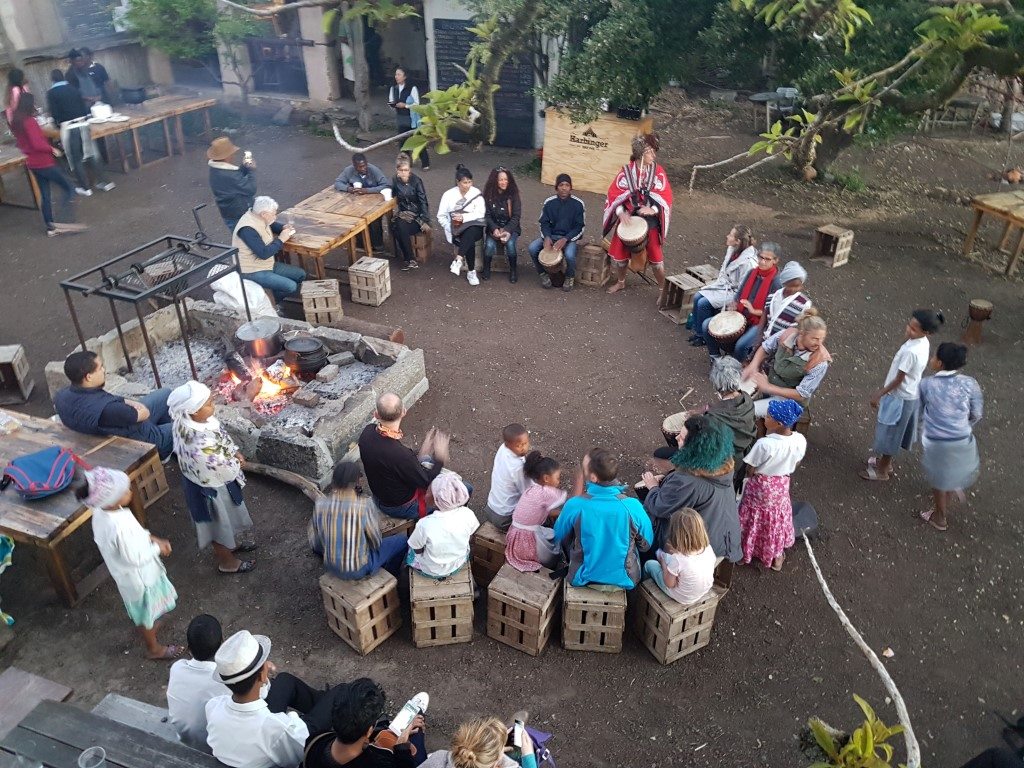
Before I put my pen down, I must definitely tell about one of the most unusual interpretations of the world music I heard by walking up and down on the steps of the University of Cape Town. World music may also appear in a posthumuman composition which has less to do with human identity and human music making than with the unpredictable events of imperialism. For example, by following the life of the African string instrument, the bangwe from Malawi, we can unveil the layers of alternative meanings attached to the world music itself. The wildlife of the Southern African region has been spectacularly diminished due to environmental degradation, which consequently forced rural residents to move to cities. In larger cities, maintained by colonial powers, indigenous people became familiar with new synthetic materials which they began to use as substituent of animal skins and tendons. Due to the industrial nylon production, the fishing-line, as the product of Western technology, was available for them to replace the cow tendon which was previously used as string of the instrument. However, as a result of the technical manoeuvre, the deep bass part changed to soprano. Thus the bangwe instrument was already spoken of in the common voice of urbanization, colonization and industrial plastic production. [1]. The soprano of nylon strings, in this sense, is the world music brought into existence by technology, within the intersection of the different worlds.
[1] From the study of Theo Herbst and Andrew Tracey in the essay collection entitled Musical Arts in Africa, Theory, Practice and Education (2003).
A bejegyzés trackback címe:
Kommentek:
A hozzászólások a vonatkozó jogszabályok értelmében felhasználói tartalomnak minősülnek, értük a szolgáltatás technikai üzemeltetője semmilyen felelősséget nem vállal, azokat nem ellenőrzi. Kifogás esetén forduljon a blog szerkesztőjéhez. Részletek a Felhasználási feltételekben és az adatvédelmi tájékoztatóban.

